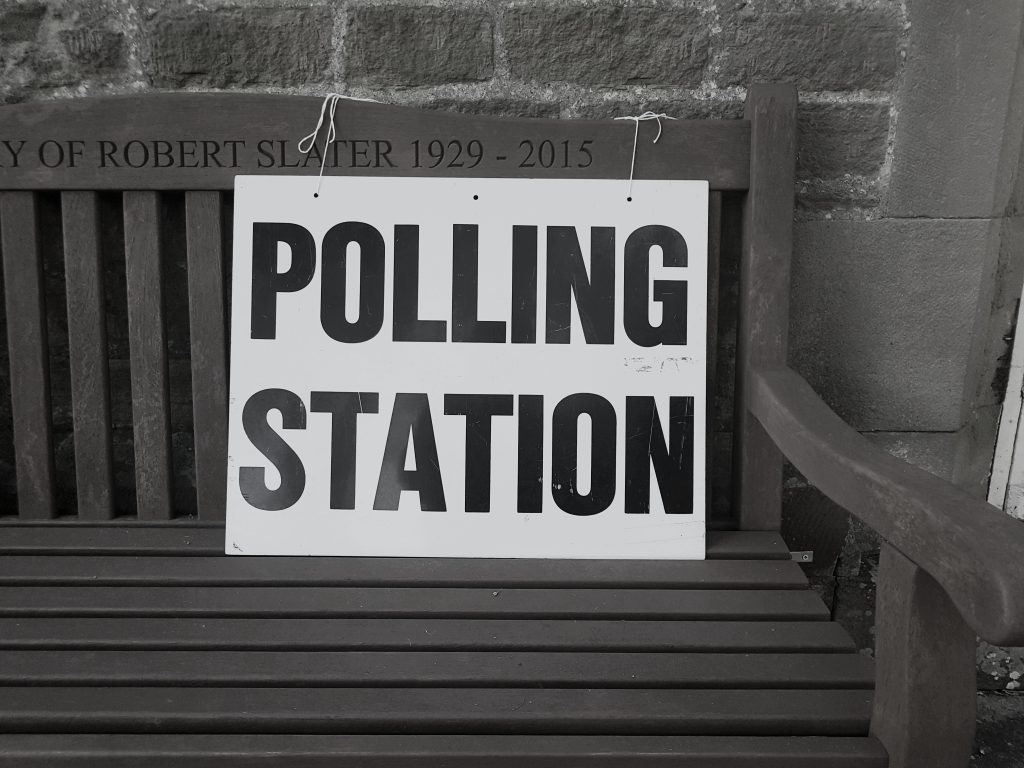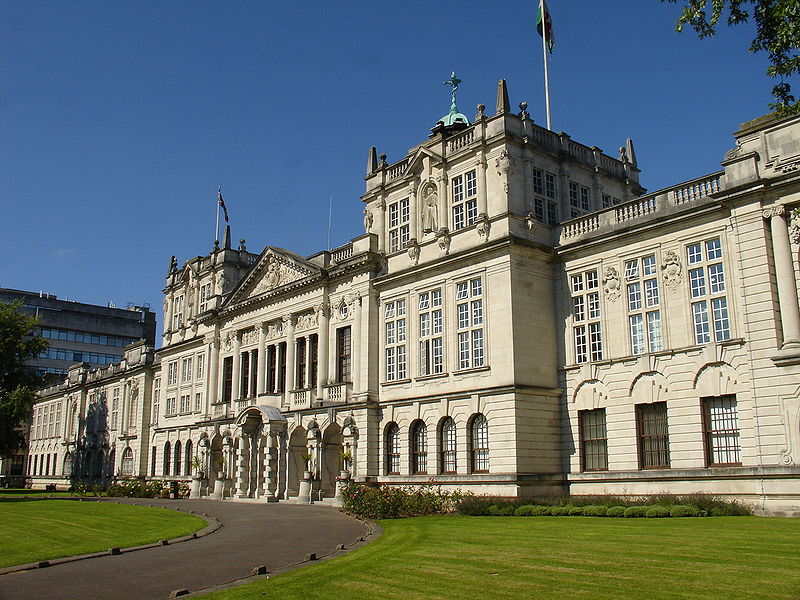An overwhelming majority of 16-to-17-year-olds want to make themselves heard this May, but our education and political system is letting them down, argues Alex Myles.
We are the devolution generation.
We know no different than a devolved Wales. But how many of us actually understand how politics works in Wales is less certain.
While Welsh politics may be complicated, we have all recently become more familiar with the considerable powers our devolved government has.
Not without its shortcomings, the Welsh Government’s distinct path in tackling coronavirus has set us apart from our neighbours in a way that’s usually reserved for sport or culture – both admittedly more appealing.
How this Labour government has handled the crisis will firmly be in the mind of voters in May’s election, not least among the newly enfranchised.
This will be the first time 16-to-17-year-olds can vote in Wales, after a law narrowly passed in the Senedd in 2019.
Enthusiasm isn’t necessarily a problem for young voters – a YouGov poll shows that 69% of 16-24-year-olds think the Senedd elections are important, higher than any other age group apart from over-65s. The BBC report that 72% of 16 to 17-year-olds in Wales wanted the vote.
What does cause concern is the lack of knowledge among this cohort, not through any fault of their own but due to the wide gap that exists between our national policy and education system.
“We aren’t taught anything about politics, unless we’re discussing the politics of Nazi Germany.”
‘I feel very unprepared. I have literally no idea what I’m doing,’ says Ellie Sanders, a 16-year-old from Swansea.
Ellie understands the importance of widening the vote and is keen to make her voice heard but she believes no one really understands the political system in Wales.
A report from Beaufort Research – commissioned by the Welsh Government – backs this claim up, stating that most participants felt disconnected to politics.
‘I’d argue that politics is seen by young people as something that goes on. It’s not for everyday people like us. There’s just no education or guidance that’s easy to understand about Welsh politics,’ she says.
Hoping to lower that barrier of engagement is Raise Your Voice, an awareness campaign formed by Boys and Girls Club Wales, one of Wales’ oldest youth organisations, and Swansea Music Art Digital (MAD).
Grant Poiner is a figurehead of the campaign and says, ‘We’ve always been keen to engage young people in politics, especially the ones we class as not the usual suspects. We know young people want better political education. At the moment, young people are leaving school without really knowing how politics works’.
Rhys Williams, a 17-year-old from Bala, wants politics to be taught at school.
He says, ‘We aren’t taught anything about politics, unless we’re discussing the politics of Nazi Germany.’
“I only know things (about the election) due to the research I’ve done myself and the information wasn’t easy to find.”
Though Rhys comes from a small rural community, he doesn’t see this as a barrier for young people to learn about politics.
‘Wherever you come from, you can gain an interest in anything really – your resources are limitless,’ he says. ‘Age is not a guarantee that someone can’t make an informed decision and seek out manifestos,’ he adds.
This is largely a generation that are digitally native and used to finding information independently.
‘I only know things (about the election) due to the research I’ve done myself and the information wasn’t exactly readily available and easy to find,’ says Ellie.
But independent research can only go so far.
An open letter signed by 32 organisations and academics, including Race Council Wales, National Union of Students and Youth Cymru has urged party leaders to ramp up communication with younger voters, wanting accessible manifestos, targeted campaigns, and consideration of new voters when creating policies.
This is not to say political parties are totally overlooking young people, however.
Labour have promised a Young Persons guarantee – an offer of work, education, or training for all those under 25. Plaid Cymru offer something similar.
The Tories pledge an improved education sector – a ‘cash boost’ for schools, creation of more apprenticeships and more encouragement for young people to go to university.
Discussions and debates that drive Wales forward.
Join Wales’ leading independent think tank.
Yet it would be disingenuous to say that 16-to-17-year-olds are voting for policies that only directly affect them.
On the whole, today’s adolescents are more tolerant than older generations, openly concerned with social justice, equality, mental health, and the environment they live in.
The latter is of particular importance to Ellie.
‘I’d like to think I’m a little bit of a climate activist,’ she says. She has recently joined online communities dedicated to action on climate change.
‘I thought I was in a real niche of young people who know about climate change, but it’s really inspiring and refreshing to see that I’m not – and that other people care too,’ she says.
Environmental policies are firmly in the political zeitgeist, with every major party in Wales offering a plan to tackle climate change with the creation of green jobs, building of carbon efficient homes, or measures to deal with pollution and plastic use.
Like climate change, the question of independence considerably piques the interest of young people in Wales.
“Looking at Scotland, 16-18-year-olds turned out in higher numbers than 18-25-year-olds for the independence referendum.”
The most recent polling shows that 16-24-year-olds are more likely to support independence than oppose it.
Yet, only Plaid Cymru and Wales Green Party are advocating any policy on the matter, proposing a referendum if in power.
Coming from a Plaid stronghold and Welsh-speaking community, Rhys has witnessed the pull of the independence movement but remains ambivalent.
‘Personally, I don’t know enough to give my full verdict on it. I don’t feel informed enough about the benefits of unionism. But we do need to look at devolution again to make sure it works for everyone.’
Rising support for independence among younger generations can demonstrate that they are indeed capable of making political decisions, informed or otherwise.
The internet and social media are nowhere near perfect resources, but as seen in the independence movement, climate activism and wider anti-discrimination movements, they can foster a sense of collectivism among young individuals that can have substantial impact.
Though communication and education about Welsh politics is lacking, age should not be seen as a barrier to engaging in politics.
Robust debate and agenda-setting research.
Support Wales’ leading independent think tank.
When the voting age was lowered in Austria in 2007, the criticism that adolescents will not engage in elections did not materialise – younger voters turned out in high numbers.
Looking at Scotland, 16-18-year-olds turned out in higher numbers than 18-25-year-olds for the independence referendum in 2014 and continued voting enthusiastically in subsequent local elections.
When it comes to Welsh politics, a lack of knowledge and a sense of confusion and disillusionment affects people of all ages.
Politics in Wales is far from invigorating and getting the bulk of the population interested in elections is a herculean task.
“Maybe young people aren’t interested in politics, but they are interested in issues.”
Overwhelmingly bureaucratic election processes mean that significant change and wide engagement are difficult to achieve.
It’s always worth noting that the turnout of Senedd/Welsh Assembly elections has never been above 50%.
But with nearly 70,000 16-17-year-olds contributing toward a total of 103,000 newly eligible voters, all of whom have lived formative years in a period marked by crises and protests, this year’s election could be quite different.
‘Maybe young people aren’t interested in politics, but they are interested in issues,’ says Grant.
It’s thus high time young people in Wales are encouraged not only to put a cross in a box when the time comes but are given the right guidance, resources and communication to ensure they feel listened to and that their needs are met, not just know who’s running where and who stands for what.
Lowering the voting age is a step towards better democratic engagement, but only with proper political education and a more transparent political process can we begin to embrace a healthy fully functioning democracy where everybody, from all ages and all demographics, are willing to take part.
You can register to vote here.
All articles published on the welsh agenda are subject to IWA’s disclaimer.





